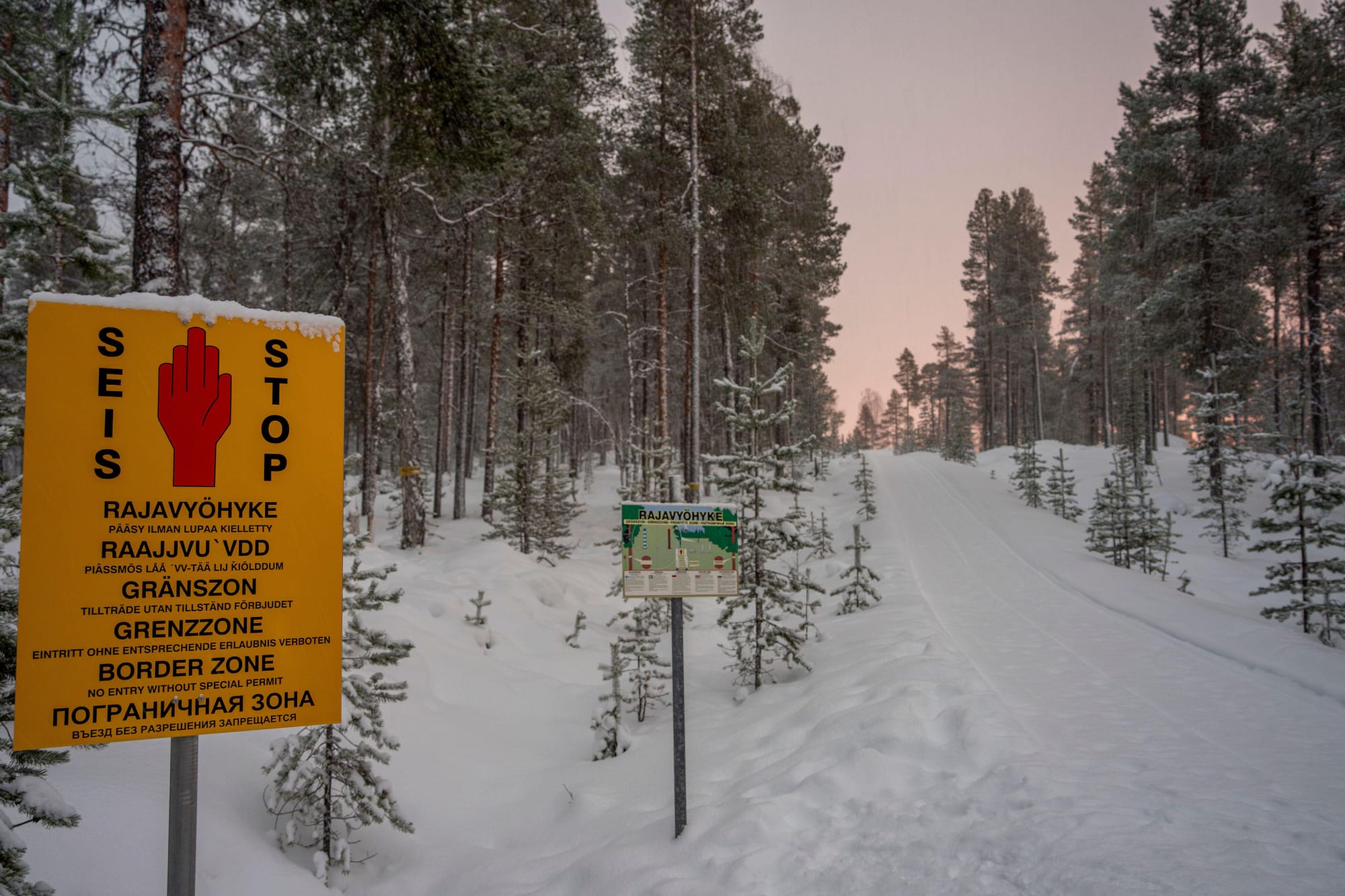Frozen out: Finland's migrant pushbacks
Bethany Rielly

Finland’s far right ministers shed tears of joy last year as Parliament passed a law authorizing the pushback of asylum-seekers at the Russian border. Driven by the virulently anti-immigration Finns Party (a junior partner in Finland’s rightwing coalition), the measure is now inspiring copycat legislation across Europe, where pushbacks – the practice of forcibly returning people across a border without assessing their rights – have hitherto been illegal.
The first of its kind in Europe, Finland’s border security law allows guards to block asylum-seekers attempting to cross its 1,300km eastern border with Russia. The measure, initially introduced for one year in July 2024, followed a rise in asylum- seekers arriving at the eastern border. Helsinki attributed the spike to Russia’s ‘weaponizing’ of migrants in retaliation for its NATO membership.
Amid plans to extend the measure until the end of 2026, rights groups and legal experts have warned that the legislation contravenes international and EU law, as well as the constitution, setting a dangerous precedent.
‘The Finnish government has pushed through a law that is contrary to the rules in international human rights law that you are not supposed to deviate from ever, not even in a crisis,’ Li Andersson, an MEP and former leader of Finland’s Left Alliance, tells New Internationalist. Annu Lehtinen, executive director of the Finnish Refugee Council, describes the measure as a ‘big shift’ for a country that ‘has always recognised the value in international law’.
The law can only be activated for a month at a time if Finland’s national security is deemed to be threatened. Yet in the year since it was passed no-one has tried to claim asylum at the eastern border – suggesting, Lehtinenn says, that the law may be having a deterrent effect.
Latvia, Lithuania and Poland have all previously engaged in illegal pushbacks, echoing Finland’s accusations of Russian interference. Poland has now also followed its legislative lead, passing a similar law in March.
As refugee protections in Europe deteriorate, more troubling still are efforts by Finland and other countries to lobby for changes at EU-level, reinterpreting asylum law in so-called ‘instrumentalization’ cases. ‘It opens a door to completely destroy the most fundamental principles in international asylum law,’ Andersson warns.
Since 2023, Finland’s government has also slashed financial and legal support for asylum-seekers and shortened refugee residence permits. A failed policy even sought to ban Muslim refugees in favour of Christians. ‘It sends a message that some people are welcome in Finland and others are not,’ says Lehtinen.
📰 To understand the ideological underpinnings of border violence, revisit Hazel Healy's 2020 piece Freedom to Move
💰 Support the Finnish Refugee Council, who provide vital humanitarian aid to those who make it across the border
🗺️ For a broader look at the increasingly brutal treatment of migrants arriving in Europe, read this 2022 piece from The Conversation
🍲 Get involved with grassroots organizations like No Name Kitchen, who provide on-the-ground support to those on the move
Read the latest issue of New Internationalist
Like what you've read? Support us with a tip
Looking for more? Listen to our podcast The World Unspun
Shop ethical goods at our very own Ethical Shop

